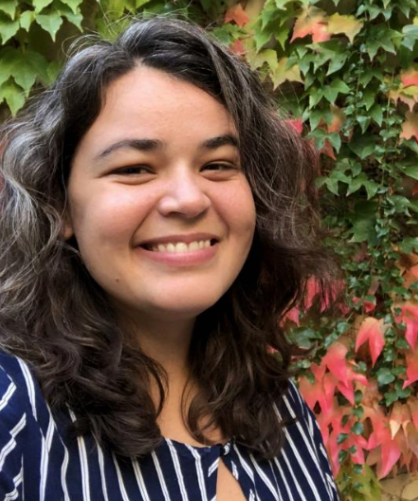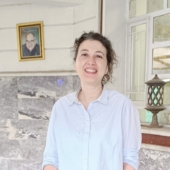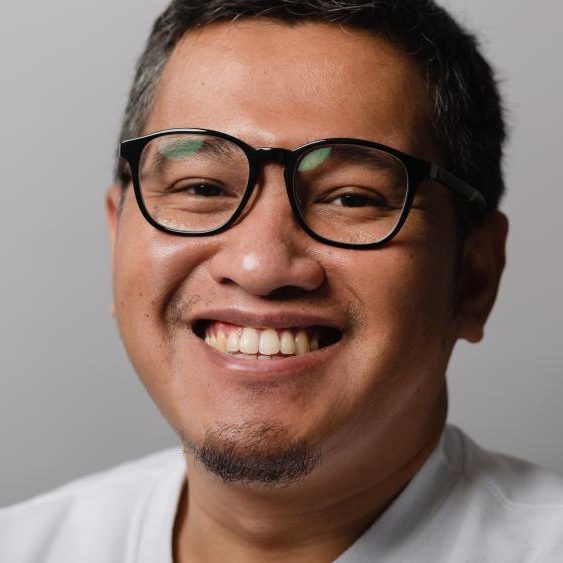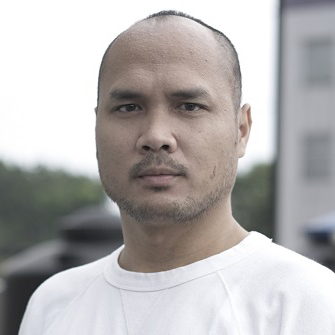First NIAS-NIOD-KITLV fellows to start in September
In September, the first two fellows of the NIAS-NIOD-KITLV Moving Objects, Mobilising Culture in the Context of (De)colonisation start their research projects. The fellowship enables researchers and heritage professionals from former colonized countries to conduct five months of research into ‘colonial collections’: objects and collections from those countries that arrived in the Netherlands in a context of colonialism. NIOD is involved in the fellowships as partner of the Colonial Collections Consortium..
The first two fellows, Caroline Fernandes Caromano and Nadia Aït Saïd-Ghanem start their research in September 2024. In February 2025, the next two fellows, Panggah Ardiyansyah and Theo Frids Hutabarat, are welcomed. Below, you can find more information about the fellows and their research projects.

Caroline Fernandes Caromano – (Re) Interweaving past and present
Caroline Fernandes Caromano is a Brazilian archeologist with academic degrees from the University of São Paulo and the National Museum of the Federal University of Rio de Janeiro (Brazil). She has been a research fellow at the Museum of Archeology and Ethnology of the University of São Paulo, the Museum Emilio Goeldi (Brazil), Leiden University, the Research Center for Material Culture, and the Naturalis Biodiversity Center (the Netherlands).
Project description
At NIAS, Caroline will revisit artworks from the period of the Dutch colonial administration in Brazil constructing a transatlantic dialogue with Indigenous and Afro-Brazilian artisans from the State of Maranhão, the last frontier conquered by the Dutch. Using basketry as a point of discussion on the peoples and material culture portrayed by Eckhout, Post, and others, the research inquires how baskets can shed light on the historical representations of marginalized segments of the Brazilian population and their political agency in the past and present. By amplifying the voices of artisans from small communities in Maranhão to the interior of the Royal Dutch Academy of Arts and Sciences, the research proposes to create a space for interpretation and recontextualization of the artworks based on Quilombola and Indigenous epistemologies.

Nadia Aït Saïd-Ghanem – Cuneiform tablets in Dutch museums and the Iraqi-French antiquities dealer Ibrahim Elias Gejou
Dr Nadia Aït Saïd-Ghanem is a provenance researcher and cuneiformist. She is a graduate of SOAS, University of London, UK, where she studied Akkadian, Sumerian, and Arabic, and obtained her PhD (Department of the Near and Middle East). Her primary research interests are cuneiform, Arabic grammatical theory, and the purchase of Iraq’s tangible heritage by museums in Europe and America from antiquities dealers. Since her British Academy Postdoctoral Fellowship (2019-2023), she has been investigating Iraqi antiquities dealers’ correspondence preserved in museum archives to write the provenance history of archaeological artefacts from Iraq, primarily cuneiform tablets, purchased from these dealers by museums between 1884 (the year in which the Ottoman Antiquities Law forbade the exportation of such objects) and WW1.
Project description
As a NIAS-NIOD-KITLV Fellow, Dr Aït Saïd-Ghanem will focus on cuneiform tablets sold to Dutch museums by the antiquities dealer and smuggler Ibrahim Elias Gejou before and after Iraq’s Antiquities Law of 1936. This study is based on correspondence between Gejou and curators of Dutch museums, held in Dutch archives today.

Panggah Ardiyansyah – Evocative Fragments: Archaeological Knowledge Production for Sendang Duwur and Its Dispersed Objects
Panggah Ardiyansyah wants to understand why an Islamic site has been marginalised (or not) within Indonesian archaeology, despite the fact that the majority of the population in Indonesia is Muslim.
Project description
The research aims to deconstruct the knowledge production of Sendang Duwur, a 16th-century Islamic complex in East Java, Indonesia. In doing so Panggah Ardiyansyah wants to contribute to the developing scholarship on heritage politics in relation to identity formation, inclusion/exclusion and frameworks of restitution.
The project activities are divided into three parts: tracing the relationships between historical figures involved in the circulation of Sendang Duwur manuscripts, reconstructing the interventions of the Archaeological Service of the Dutch East Indies at Sendang Duwur in the first half of the 20th century, and outlining the entangled movements of manuscripts and artefacts associated with the site.

Theo Frids Hutabarat – Reimagining Pustaha
How can the pustaha be connected to the common Batak people today? Could the knowledge in the pustaha be applied to local environmental activism? Is it possible to comprehend the pustaha through artistic means?
Project description
Theo Frids Hutabarat’s project focuses on the Batak manuscripts known as pustaha and how museums in the Netherlands take care of them. He aims to study the life of these manuscripts in their current setting, far from their origin in Sumatra, Indonesia. By creating a local network that connects with the institutions housing these manuscripts, Hutabarat plans to swap certain care methods with other methods, causing a ‘glitch’ in the existing care system.
Using a collaborative approach, the project seeks to deepen the understanding of the past by exploring Batak spirituality, not just focusing on ancestors and rituals but also on political, social, and environmental histories. Pustaha are viewed as vital for rebuilding the spiritual world of the Batak people within new societal frameworks.
The project will reflect on how pustaha are interpreted (or not) and to reimagine them as a lived experience in living communities. This research aims to start the long process of reconnecting the manuscripts and their knowledge back to the Batak people.